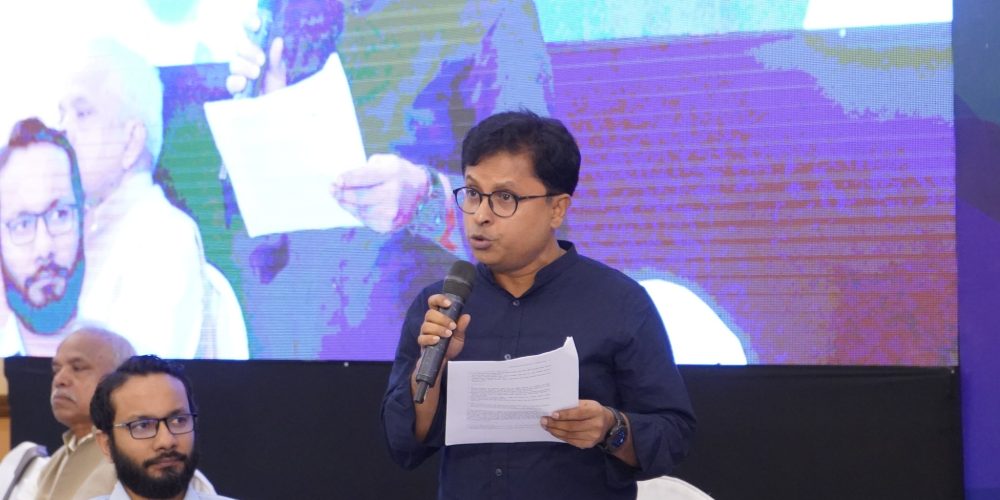Shakirul Islam, Chairperson of the Ovibashi Karmi Unnayan Program (OKUP), today participated in a post-budget discussion organised by the Citizen’s Platform for SDGs, Bangladesh. The discussion, titled ‘National Budget 2025–26: What is There for the Left-behinds?’, was held before the anticipated passage of the budget on June 22.
The event, which brought together academicians, business leaders, rights activists, and public officials, carefully examined the first budget of the interim government, presented by finance adviser Salehuddin Ahmed on June 2, after the government assumed power on August 8.
During the session, Mr. Islam argued for greater recognition and allocation for migrant workers, a community he identified as among the most neglected. He highlighted the significant role of Bangladeshi migrant workers, with approximately 1 million or more leaving the country annually, contributing an average of BDT 2 lakh crore in remittances over the last five years.
“Despite our substantial financial and economic contributions, the budget allocation for migrant workers consistently ranks among the lowest across ministries,” Mr. Islam stated. He presented stark figures: the budget allocation for FY 2024-25 was BDT 1217 crore, merely 0.35% of the total remittances. Alarmingly, the proposed budget for FY 2025-26 has seen a 30% reduction, down to BDT 855 crore, projected at only 0.22% of remittances.
Furthermore, Mr. Islam pointed out a critical disparity between allocation and actual expenditure. “When we examine actual spending, it typically shrinks to about 50% of the allocated budget. This 50% is then divided between operating costs and a nearly non-existent development budget,” he explained, underscoring the inadequacy of current provisions.
Mr. Islam also raised concerns about the quality and relevance of training provided to aspiring migrant workers. While acknowledging allocations for RPL, NTVQ, and TTCs, he questioned whether these training centres offer internationally recognised and market-demand-driven skills. “I see no reflection in this budget for the necessary reforms to make our training internationally recognised, despite advocating for this for years,” he asserted.
A major focus of his intervention was the severe lack of protection for migrant workers, particularly regarding health. “When we, as migrant workers or family members, toil in 50-degree Celsius heat in the Middle East or endure rain and sun, our protection, especially health, is almost entirely absent from the budget’s listed projects,” Mr. Islam lamented. He noted the existence of death and disability insurance but stressed that comprehensive health insurance is “completely ignored.” He criticised the minimal coverage provided by employer-mandated “Iqama/Akama” insurance, which serves more as a mere obligation than genuine health protection.
Mr. Islam proposed the urgent need for a portable health insurance scheme that would cover migrant workers both abroad and upon their return to Bangladesh. He also highlighted the systemic failures in providing social protection for those who return without securing jobs or fall victim to fraud, as well as the complete absence of mechanisms for compensation and legal redress against employers abroad.
Debapriya Bhattacharya, Convener of the Citizen’s Platform for SDGs and a distinguished fellow at the Centre for Policy Dialogue (CPD), acknowledged Mr. Islam’s “very well taken” three key points: the absence of adequate health insurance and protection, the lack of legal protection, and the insufficient governmental support mechanisms through embassies and labour wings abroad. Mr. Bhattacharya underscored that these critical areas continue to suffer from a lack of budgetary allocation, reinforcing the need for policy review and increased investment.


